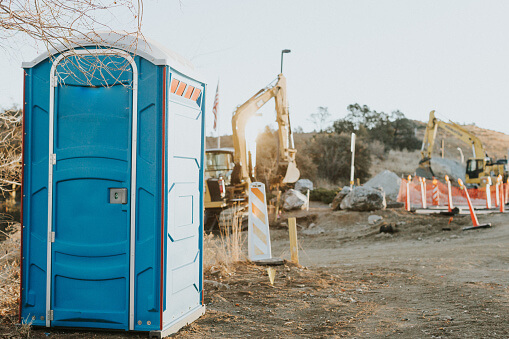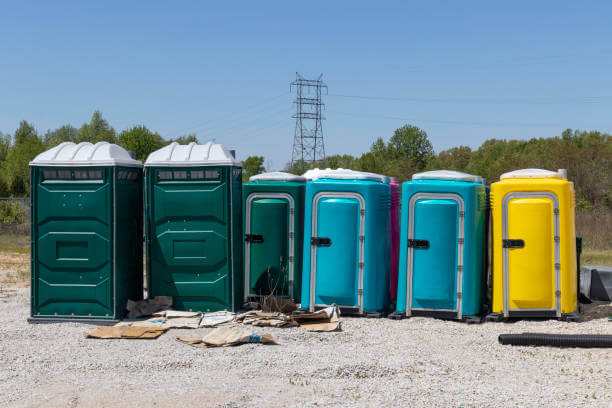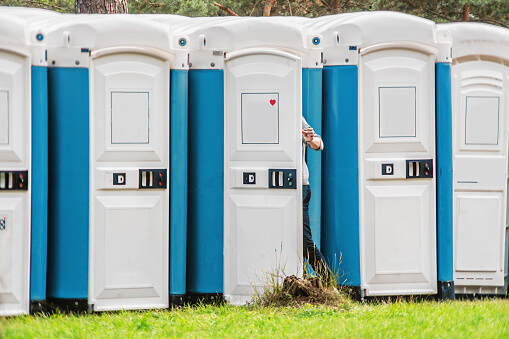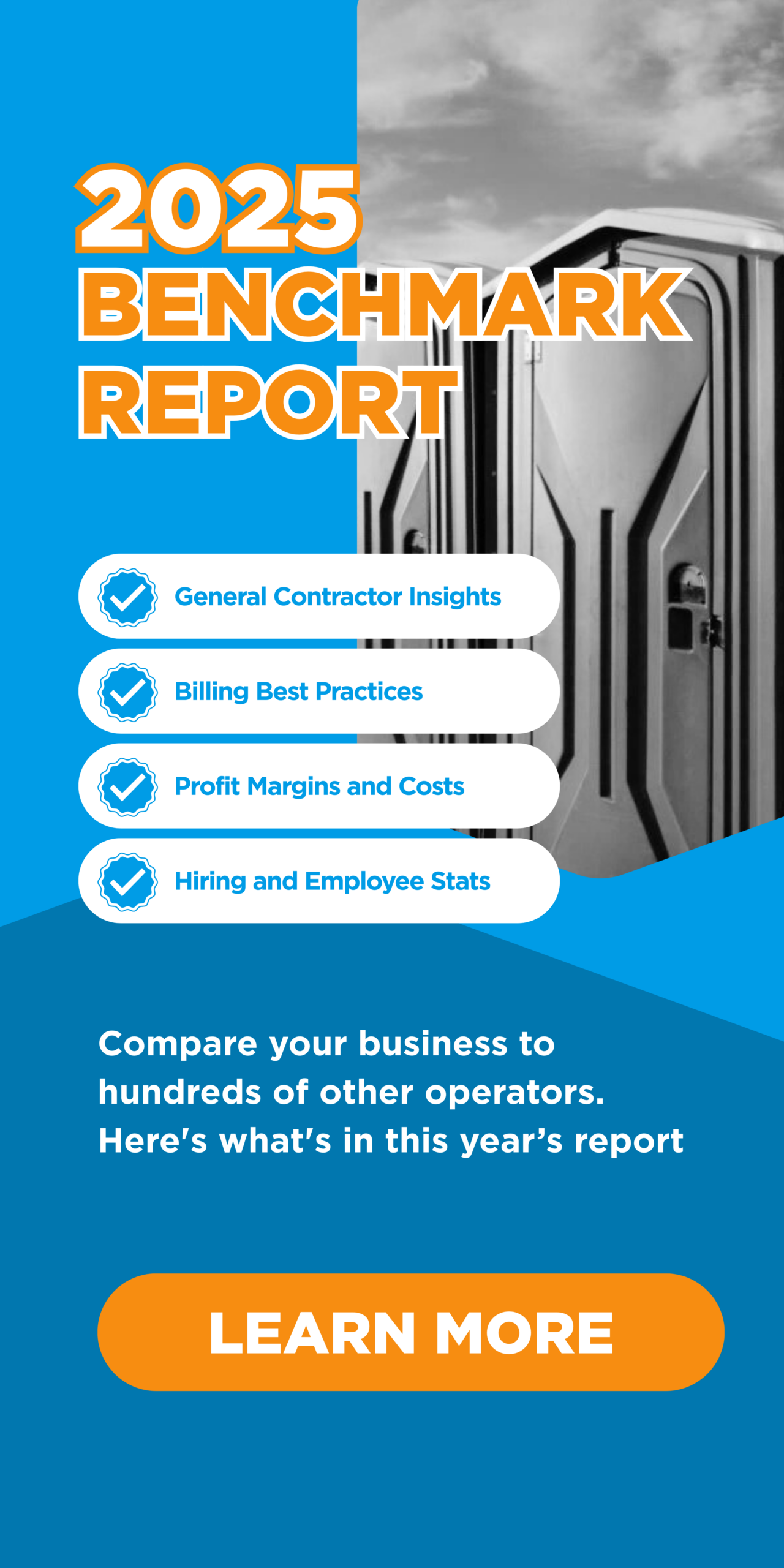Starting a Portable Toilet Business

Are you considering starting your own portable toilet business? There are dozens of reasons to take the plunge. Not only is it a lucrative and growing industry, but it can also provide an excellent opportunity to build your own business and make a great living. With the right knowledge, planning, and hard work – anyone can be successful in this field!
This blog post will explore the basics of starting a portable restroom business from scratch. From selecting the perfect supplier to developing an effective marketing strategy —we’ll cover all the key steps for success as an entrepreneur. Finding a reliable and trustworthy portable restroom business supplier is critical for any business in this field to succeed.
7 Tips For Entrepreneurs Starting a Portable Toilet Business

Starting a portable toilet business can be an exciting and rewarding experience. With the right knowledge, planning, and hard work – anyone can be successful in this field! Here are seven tips to help entrepreneurs start their own portable restroom rental business:
Research the competition.
Before getting started, take some time to research your competitors in the area. Consider how they’re pricing their services and what features/services they offer that make them stand out from the rest. This will give you helpful insight into what it takes to be competitive in the industry.
Look into their customer service and see how responsive they are to their customers. You can also look at online reviews from customers who have used the services of your competitors. This will give you a better understanding of people’s experience with these companies, which will help you create an exceptional customer experience for your successful portable toilet business.
It’s also important to consider where potential customers are located and how far away they may be from your current location. Knowing this information can help you determine the best locations for renting portable toilets to reach more potential customers.
Finding creative ways to tap into new markets, such as outdoor events planning, construction sites, and construction companies, may also help increase the profits generated from your porta potty business. Before getting started, take some time to research the portable restroom industry.
Choose a supplier carefully
Choose a reliable and trustworthy supplier for your portable toilets and related services to ensure success. Look for companies with extensive experience in the industry as well as customer service. Make sure you know their policies and procedures before committing to any agreements. Their existing and past customers to a better understanding of their services.
It’s important to also think about pricing when picking you. Compare the prices of different suppliers and consider factors like delivery fees, material costs, and installation fees. You may be able to negotiate a cheaper rate if you buy in bulk or purchase long-term contracts with certain suppliers.
Ensure you carefully read the supplier’s relevant documents before signing any contract agreements. These documents must be clear and concise so that both parties understand what is expected from them throughout the agreement. If any changes need to be made or additional services are provided, clarify this in writing first.
Develop Business
Develop a comprehensive business plan Before starting your portable toilet, it’s important to develop a thorough business plan. This will help you create realistic goals, develop an effective marketing strategy, and determine your services’ most profitable pricing structure.
Start by researching the industry, analyzing your competition, and looking for potential customer segments. You should also define your target market, estimate start-up costs, and determine how you will finance the business. Create an operational plan detailing your services and how to make them available to customers, such as delivery options, payment terms, etc.
Obtain necessary permits and licenses
Depending on where you’re located, certain permits or licenses may be needed to legally operate a portable toilet rental industry business in that area. Be sure to research what’s required to ensure compliance with local regulations.
You should also check with the local health department, as they may have additional regulations or restrictions regarding supplying and servicing portable toilets. Additionally, you’ll need to obtain any necessary insurance coverage for your business. This would protect your property, equipment, employees, and clients if anything were to go wrong.
It’s important to contact your state licensing board to ensure that you understand the requirements and procedures for obtaining a license. Once all permits and licenses are obtained, keep them updated.
Invest in quality equipment
Quality equipment is essential for providing top-notch service. Invest in portable toilets supplier designed for use outdoors and ensure they’re enough to withstand harsh weather conditions. Also, consider investing in accessories such as hand wash stations, deodorizers, and toilet paper seat covers for convenience.
Regarding delivery and transportation, ensure you have the appropriate equipment, such as trucks, trailers, or carts. Invest in reliable and well-maintained vehicles that can handle heavy loads. Also, choose a service provider with trained drivers with experience handling this type of equipment.
In addition to good quality portable toilets, you should invest in quality cleaning products and supplies for regular maintenance and upkeep. Choose natural or organic cleaning agents whenever possible, as they are better for the environment and more effective at removing dirt and bacteria from surfaces. Also, consider investing in protective gear like gloves, masks, goggles, etc., to protect employees from any potential health risks associated with working with chemicals or waste materials.
Develop an effective marketing strategy
Once your business is up and running, developing an effective marketing strategy is important to help promote your services and gain more customers. Consider using a combination of traditional (print ads) and digital (social media) advertising tactics to get the word out about your business.
For traditional advertising, consider distributing flyers and postcards in highly visible locations such as public restrooms, cafes, and bars. You can also place ads in local newspapers, radio stations, bulletin boards, or community message boards.
For digital marketing tactics, create a website for your business and launch social media accounts (Facebook, Twitter, Instagram, etc.) to spread the word about your services. Post content regularly that showcases what you offer – from prices to services offered – to generate interest among potential customers.
Additionally, consider running targeted ads with relevant keywords to reach a larger audience and build trust with potential customers; for example, paid search engine optimization, email campaigns, or influencer marketing.
Double-check safety procedures;
Portable toilets can pose risks if not used or maintained properly – which is why it’s critical to have safety procedures in place. Ensure your employees are adequately trained on the proper use and maintenance of each unit. Additionally, consider purchasing portable toilets with safety features such as handrails or alarm systems for added security.
Ensuring that the portable toilets are properly serviced regularly is also important. This includes emptying, cleaning, and sanitizing each unit. Check for any damage or malfunctions in the portable toilet rental business and address them quickly and appropriately.
You should also regularly review safety protocols with your employees to ensure everyone is up-to-date on best practices. Establish clear rules and regulations about how your employees should handle potential accidents or health risks associated with their work environment. Ensure everyone understands the consequences of not following safety procedures — such as legal liabilities, employee injury, etc.
Why consider starting a portable toilet business?

Starting a portable toilet business is an excellent opportunity to build your business and make a great living. The industry is lucrative and growing, making it an ideal venture for entrepreneurs looking to capitalize on the demand. Moreover, as long as you can provide quality service and are flexible with pricing, there should be no shortage of clients needing portable toilets.
In addition to being profitable, starting a portable toilet business can also provide job satisfaction. Not only are you helping people in need, but you can also use your skills and knowledge to grow the business into something successful. Plus, it offers flexibility to work when and where you want – which can be very rewarding for individuals who prefer more autonomy over their jobs. When starting a portable toilet supplier business, it’s important to separate personal and business accounts.
The Benefits of Starting a Portable Toilet Business
Flexible Schedule:
Operating your own portable toilet business allows you to work when and where you want, allowing for more flexibility. You can decide when to be available, how often you want to work, and what services you’d like to offer. This means that you can tailor your business to fit your lifestyle.
Low Overhead:
Portable toilet companies require minimal start-up capital and very low overhead costs compared to other businesses. With a cost-effective setup, you’ll maximize profits while minimizing operating expenses.
Potential for Growth:
Portable toilets are in high demand, and the industry is expected to grow significantly over the next few years – making it an excellent investment opportunity for entrepreneurs looking for long-term success. Not only can you benefit from an ever-growing market, but you can also expand your service area to take advantage of new opportunities.
Guaranteed Payment:
Unlike most businesses, portable toilet companies typically require upfront payments for their services, so you’ll always be guaranteed payment when providing a job well done. This makes it easier to plan and manage cash flow more effectively.
Low Stress:
Since the industry is largely unregulated, there are fewer risks associated with the business than in other industries. As a result, running a portable toilet business is generally less stressful than dealing with some of the bureaucracies that accompany traditional businesses, like filing taxes or managing employees.
Low Competition:
The portable toilet industry is relatively small, and the competition isn’t very fierce, so you won’t have to worry about competing with larger companies. As long as you’re offering quality service, there should be plenty of opportunities to grow your business without worrying about being outdone by other businesses.
Recurring Revenue Streams:
Once you establish a base of customers, portable toilets can provide a regular income stream for your business due to recurring services such as emptying and refilling tanks or performing maintenance tasks. This creates a more consistent flow of revenue that is beneficial from a financial and operational perspective.
Tax Benefits:
As a business owner, you’re eligible to take advantage of tax deductions and credits that can help reduce your overall tax bill. Additionally, you may be able to write off certain expenses related to running your portable toilet business, such as mileage or repairs.
Potential for Expansion:
The portable toilet industry has strong potential for expansion in both the residential and commercial sectors. As more people become aware of portable toilets and their benefits, a growing demand for your services could open up new growth opportunities.
Customer Satisfaction:
Finally, providing quality service is the key to success in the portable toilet industry – it’s very important that customers are satisfied with your work. By focusing on delivering superior customer service and maintaining high standards of cleanliness, you can ensure that customers keep coming back for more.
FAQs
A portable toilet business can be highly profitable if you can develop a reliable customer base, offer competitive rates and provide excellent customer service. As the industry is relatively low-cost and has low competition, there is potential for higher profit margins than other businesses – as long as your pricing remains competitive.
Additionally, by providing recurring services such as emptying and refilling tanks or performing maintenance tasks, you’ll have a steady revenue stream that can increase profits even further. Finally, tax benefits and deductions available to business owners can also help reduce operating costs, leaving more funds available for profitability. With the right knowledge and planning – anyone can turn their portable toilet business into a successful venture!
Starting a public toilet business can be a lucrative and rewarding venture. As the industry continues to grow, there is plenty of opportunity for entrepreneurs looking to capitalize on this expanding market.
Researching the industry is the first step in starting your public toilet business. From understanding local legislation and regulations to identifying potential customers and suppliers – taking the time to do your due diligence will pay off in the long run.
Next, you’ll need to select an appropriate location for your business. Location matters when it comes to public toilets – they should be easily accessible and ideally close to areas where people congregate, such as shopping malls or parks. You’ll need to consider factors such as local competition and the cost of renting or purchasing the location.
Yes, you will likely need a permit for your porta-potty business. Depending on your location and the regulations in that area, permits may be required from local governments or other organizations. Specifically, there may be requirements for health inspections, zoning permits, and building codes that must be followed.
In addition to obtaining the necessary permits, some other rules and guidelines must be followed when operating a porta-potty business. For example, businesses must properly train employees who handle waste disposal and ensure that all safety protocols are followed. The units’ maintenance is essential to ensure they are clean and functioning properly.
Portable toilets get water in several different ways, depending on the make and model of the unit. Some models have a hand pump that draws water from an internal or external tank such as a river or lake. Other portable toilets have reservoirs that must be filled manually, usually using jugs or buckets.
Some portable toilet models use gravity to feed water into the bowl. These toilets have tanks higher than the bowls and use gravity to transfer water into the lower portion when flushing is activated. This system requires refillable containers instead of manual filling and can be useful for locations without access to a traditional plumbing infrastructure.
Portable toilets are designed to be durable and long-lasting. Under ideal conditions, they can last anywhere from 3 to 10 years. The life expectancy of a portable toilet depends on the material it is made out of, as well as how well it is cared for.
Most portable toilets are constructed from plastic or fiberglass, making them resistant to UV rays and water damage. These materials are light enough that porta-potties can easily be transported from one location to another without requiring special equipment or vehicles. Proper maintenance, such as regular cleaning and storage when not in use, will help ensure your portable toilet lasts many years.
Conclusion
Starting a portable toilet business can be a lucrative and rewarding venture. With the right knowledge, planning, and hard work – anyone can be successful in this field! From understanding local legislation and regulations to selecting an appropriate location to obtain necessary permits, many steps are involved in successfully starting your portable toilet business. By properly researching the industry and taking the time to maintain your units, you’ll have all the tools needed for success.



